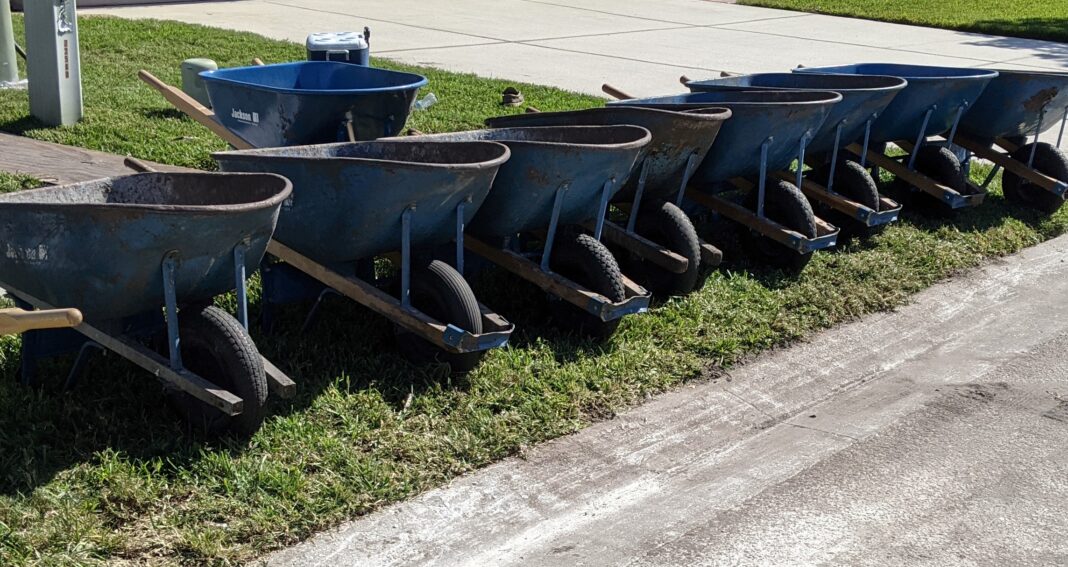Last week I was watching a crew of manual workers installing riprap around the pond across the street to fix an erosion problem. During a break I talked to their supervisor who explained a bit about what was involved. It reminded me that what we often consider simple work requiring mainly motor skills is in reality cognitively complex, requiring as much knowledge and skill as most white-collar jobs, and for skilled trades, perhaps even more. This raises the issue that we should not discourage students from manual work for their careers.
What Is Manual Work
Manual work is simply work that involves physical labor, that is, the manipulation of physical objects. This involves both making things and fixing things. Where white-collar jobs involve communication and manipulating information, manual work involves these activities and more. It requires creativity, decision-making, information processing, problem solving, situational awareness and teamwork. Depending on the task, manual work requires the use of computers, hand and power tools, and machinery. It occurs in a variety of settings, although much of it occurs in a factory or shop.
Just like white-collar jobs, manual jobs vary in complexity and variety from day laborers who perform simple tasks, such as digging or moving material, to highly skilled trades. These trades include
- Automotive Technician
- Electrician
- Mason
- Plumber
- Welder
These jobs require a high level of knowledge and many cognitive and motor skills. Knowledge is not just needed to perform tasks correctly. It is also necessary to be able to perform the job safely, as making mistakes on the job can lead to accidents and injuries.
Skilled Trades Require High Levels of Talent
Manual work requires a complex combination of KSAOs (knowledge, skill, ability, and other characteristics). The U.S. Bureau of Labor Statistics created the O*NET to provide snapshots of the KSAOs for many occupations. For the skilled trade of electrician, O*NET lists many KSAOs that we might normally think of for white-collar work.
- Analytical or scientific software
- Computer aided design (CAD) software
- Data base software
- Word processing
- Knowledge of mathematics and English language
- Active listening
- Critical thinking
- Reasoning
- Oral comprehension
This skill set is in addition to inspecting/testing electrical systems, and using equipment and tools, and many other KSAOs required to do electrical tasks themselves.
We Should Not Discourage Students from Manual Work
At least in the U.S., students in school are strongly encouraged to go to college and pursue a white-collar career, especially in business or STEM (Science, Technology, Engineering, Mathematics). But not everyone is suited to white-collar work and these careers. The over-emphasis will likely push many students into jobs that are not satisfying and/or do not match their capabilities. I’ve met skilled tradespeople, like the technician who fixed my refrigerator, who went to college but decided that office work was not for them.
Students would be better served by guiding them through a broader career exploration that would lead many into manual work that enables them to make full use of their many talents. Such work can be a better fit to a student’s interests for those who enjoy working with their hands, or those who prefer working outdoors. Manual work is in high demand and provides career and geographic flexibility. For these reasons we should not discourage students from manual work.
Photo by Paul Spector.
SUBSCRIBE TO PAUL’S BLOG: Enter your e-mail and click SUBSCRIBE

It’s interesting to ask white-collar workers what their hobbies are as well. I’ve found that many people from that group engage in manual work as a relaxing activity. For example, in a university department where I worked, all the faculty seemed to be involved in activities ranging from gardening to classic car restorations. If people think of such manual work activities as a cognitive antidote to their white-collar jobs, then students should indeed feel comfortable selecting manual labor for their primary occupation.
My son is a land surveyor, building solar farms across America. He left college after a year. Six years later, he enrolled himself in a CAD program, has OSHA certification and is being trained to run drones. Traditional school wasn’t for him…and I couldn’t be more proud.